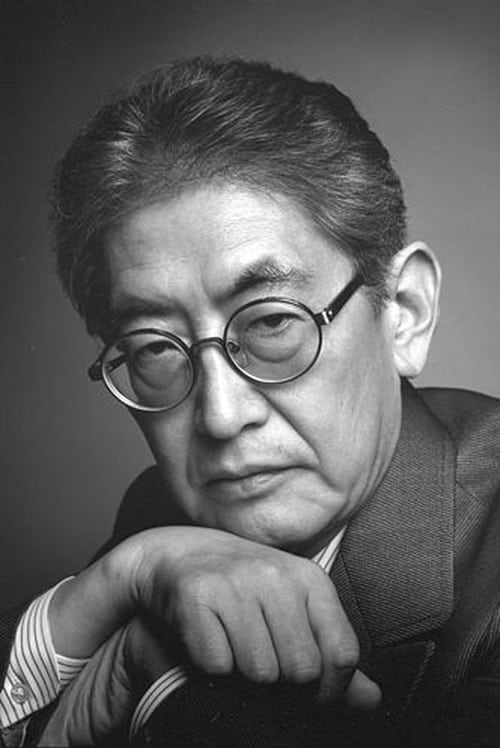
Self (archive footage)
Screen icon Charlotte Rampling has fascinated the world of cinema, fashion and photography with her mysterious and almost inaccessible beauty. A major figure in genre and auteur films, she is unclassifiable: between presence and absence, shyness and audacity, she's always hypnotic, magnetic and fascinating. From her film debut in the mid-1960s in England, to her unconventional career path, through the tragic loss suicide of her older sister that will irremediably mark her acting, this film is a dive into the existential quest of a complex actress, whose every facet is discovered through her roles. Through a conversation with the actress herself, along with personal archives and extracts from her films, this documentary raws a dazzling portrait of her life and career.

Self (archive footage)

Works commemorating the 70th anniversary of the founding of Japan mapping Supervision Association

First major English-language documentary profile of the cult Japanese actor/director, Takeshi Kitano. Featuring interviews with many of his regular contributors and colleagues, the film explores Kitano's rise from working-class poverty to superstar of Japanese radio, TV, comedy and journalism, and follows the making of his US-Japanese gangster film, 'Brother'.

Himself
Devotion investigates the extremely complex and heirarchical relationships among a committed group of Japanese filmmakers who dedicated up to 30 years of their lives making films for one man-Ogawa Shinsuke. Members of Ogawa Pro filmed the student movement of the late 60's; the fight by farmers to save their land from government confiscaton for the Narita airport at Sanrizuka; and the village life of a small farming community, Magino Village, in northern Japan. These heartbreaking and sometimes funny stories have never been told on film before. Rare footage, stills, and diaries with interviews with Oshima Nagisa, Hara Kazuo and Robert Kramer make this historical inquiry visually exciting as well as valuable.

Writer
1865年京都。新選組は新たに隊士を募集し多くの志願者が集まる中、一際異彩を放つ美少年がいた。加納惣三郎と名乗るその青年は剣豪・沖田総司をも手こずらせる程の剣の腕の持ち主だった。そして、もう一人、加納と双璧をなす程の剣の腕の持ち主・田代彪蔵の二人が入隊を許可された。しかし、この二人の入隊によって新選組内部の空気は少しずつ変わっていくことになる。田代は衆道(男色)の気を持つ男であり、惣三郎を衆道に引きずり込もうとしていた。そんな中、惣三郎に密かに想いを寄せていた隊士・湯沢藤次郎が何者かによって惨殺される。土方は湯沢の恋敵であった人間が斬ったのではないかと疑い始める。

Director
1865年京都。新選組は新たに隊士を募集し多くの志願者が集まる中、一際異彩を放つ美少年がいた。加納惣三郎と名乗るその青年は剣豪・沖田総司をも手こずらせる程の剣の腕の持ち主だった。そして、もう一人、加納と双璧をなす程の剣の腕の持ち主・田代彪蔵の二人が入隊を許可された。しかし、この二人の入隊によって新選組内部の空気は少しずつ変わっていくことになる。田代は衆道(男色)の気を持つ男であり、惣三郎を衆道に引きずり込もうとしていた。そんな中、惣三郎に密かに想いを寄せていた隊士・湯沢藤次郎が何者かによって惨殺される。土方は湯沢の恋敵であった人間が斬ったのではないかと疑い始める。
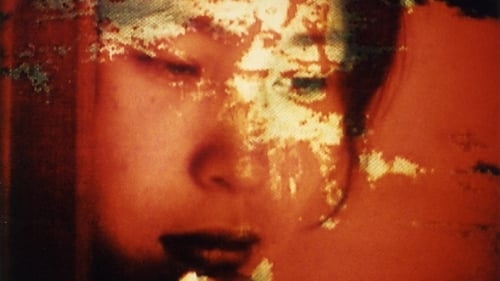
Himself
The French computer programmer Laura inherits the task of making a computer game of the Battle of Okinawa in Japan during World War 2. She searches the Internet for information on the battle, and interviews Japanese experts and witnesses. The extraordinary circumstances of the Battle of Okinawa lead Laura to reflect deeply on her own life and humanity in general, particularly the influence of history and memories.
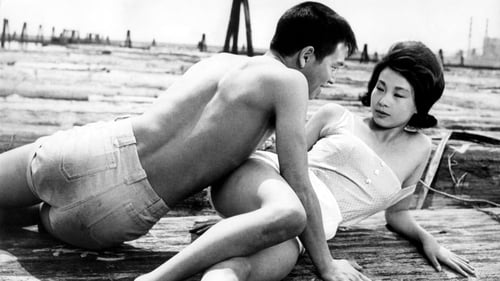
Writer
「映画誕生100年を目前に控えた1992年、長い間完全に失われてしまったと思われていた、『忠次旅日記』(1927)のプリントの一部が発見された。監督、伊藤大輔は、自分の最高傑作は永遠に失われたと信じたまま、すでに82年の生涯を閉じていた。…」

Self - Narrator (voice)
「映画誕生100年を目前に控えた1992年、長い間完全に失われてしまったと思われていた、『忠次旅日記』(1927)のプリントの一部が発見された。監督、伊藤大輔は、自分の最高傑作は永遠に失われたと信じたまま、すでに82年の生涯を閉じていた。…」

Director
「映画誕生100年を目前に控えた1992年、長い間完全に失われてしまったと思われていた、『忠次旅日記』(1927)のプリントの一部が発見された。監督、伊藤大輔は、自分の最高傑作は永遠に失われたと信じたまま、すでに82年の生涯を閉じていた。…」

Self
Nagisa Oshima interviews Akira Kurosawa, leading him to share his thoughts about filmmaking, his life and works, and numerous anecdotes relating to his films and his various film activities.

Himself
Story of Kyoto: its history, culture, as well as the role it has played in the director's life and the life of his mother.

Writer
Story of Kyoto: its history, culture, as well as the role it has played in the director's life and the life of his mother.

Director
Story of Kyoto: its history, culture, as well as the role it has played in the director's life and the life of his mother.

Documentary featuring Nagisa Ōshima and Masuaki Kiyota, a Uri Geller-esque psychic medium

Writer
The wife of a British diplomat in Paris takes a chimpanzee as her lover.

Director
The wife of a British diplomat in Paris takes a chimpanzee as her lover.

Self
A BBC television documentary on the life of Yukio Mishima that highlights the many known major aspects of his life and personality.

Self
Documentary about the making of Nagisa Oshima's 1983 film MERRY CHRISTMAS MR. LAWRENCE.
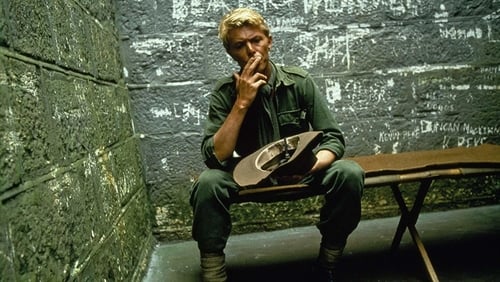
Screenplay
1942年、日本統治下にあるジャワ島レバクセンバタの日本軍俘虜収容所で朝鮮人軍属カネモトがオランダの男性兵デ・ヨンを犯す。日本語を解する俘虜(捕虜)の英国陸軍中佐ジョン・ロレンスは、ともに事件処理にあたった粗暴な軍曹ハラと奇妙な友情で結ばれていく。 一方、ハラの上司で所長の陸軍大尉ヨノイは、日本軍の背後に空挺降下し輸送隊を襲撃した末に俘虜となった陸軍少佐ジャック・セリアズを預かることになり、その反抗的な態度に悩まされながらも彼に魅せられてゆく。 同時にカネモトとデ・ヨンの事件処理と俘虜たちの情報を巡り、プライドに拘る空軍大佐の俘虜長ヒックスリーと衝突する。東洋と西洋の宗教観、道徳観、組織論が違う中、各人に運命から届けられたクリスマスの贈りものが待っていた。

Director
1942年、日本統治下にあるジャワ島レバクセンバタの日本軍俘虜収容所で朝鮮人軍属カネモトがオランダの男性兵デ・ヨンを犯す。日本語を解する俘虜(捕虜)の英国陸軍中佐ジョン・ロレンスは、ともに事件処理にあたった粗暴な軍曹ハラと奇妙な友情で結ばれていく。 一方、ハラの上司で所長の陸軍大尉ヨノイは、日本軍の背後に空挺降下し輸送隊を襲撃した末に俘虜となった陸軍少佐ジャック・セリアズを預かることになり、その反抗的な態度に悩まされながらも彼に魅せられてゆく。 同時にカネモトとデ・ヨンの事件処理と俘虜たちの情報を巡り、プライドに拘る空軍大佐の俘虜長ヒックスリーと衝突する。東洋と西洋の宗教観、道徳観、組織論が違う中、各人に運命から届けられたクリスマスの贈りものが待っていた。

documentary about Nagisa Oshima
It includes interviews with Oshima, Donald Richie, Roger Pulvers and Paul Mayersberg

Himself
A Visit to Ogawa Productions offers a rare insight into the social and cinematic philosophy of one of Japan's best-known documentary film collectives. As the film reveals, Ogawa Productions' in-depth portraits of Japanese society - whether of protest movements or traditional agricultural life - grew out of an unusual commitment to integrate themselves with the communities they filmed, to the extent that their film-making literally became an alternative lifestyle.

N°806
Cinématon is a 156-hour long experimental film by French director Gérard Courant. It was the longest film ever released until 2011. Composed over 36 years from 1978 until 2006, it consists of a series of over 2,821 silent vignettes (cinématons), each 3 minutes and 25 seconds long, of various celebrities, artists, journalists and friends of the director, each doing whatever they want for the allotted time. Subjects of the film include directors Barbet Schroeder, Nagisa Oshima, Volker Schlöndorff, Ken Loach, Benjamin Cuq, Youssef Chahine, Wim Wenders, Joseph Losey, Jean-Luc Godard, Samuel Fuller and Terry Gilliam, chess grandmaster Joël Lautier, and actors Roberto Benigni, Stéphane Audran, Julie Delpy and Lesley Chatterley. Gilliam is featured eating a 100-franc note, while Fuller smokes a cigar. Courant's favourite subject was a 7-month-old baby. The film was screened in its then-entirety in Avignon in November 2009 and was screened in Redondo Beach, CA on April 9, 2010.

Writer
兵隊帰りの若者は、40歳すぎながらまだまだ若くみえる人力車夫の妻と関係を持つ。26歳も年が離れていることを知りつつ若者との関係を断つことのできない女は、ついに若者と共謀し夫を殺害、井戸の中に投げ捨てる。しかしそれから、夢の中で車夫を見たという者が現れ、やがて妻や若者の前にも車夫の亡霊が姿を見せるようになる。

Director
兵隊帰りの若者は、40歳すぎながらまだまだ若くみえる人力車夫の妻と関係を持つ。26歳も年が離れていることを知りつつ若者との関係を断つことのできない女は、ついに若者と共謀し夫を殺害、井戸の中に投げ捨てる。しかしそれから、夢の中で車夫を見たという者が現れ、やがて妻や若者の前にも車夫の亡霊が姿を見せるようになる。
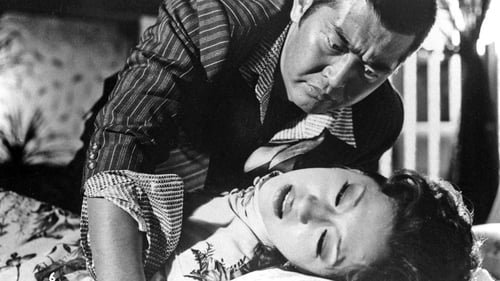
Muramoto
抗争事件を追い続け、十年のキャリアを誇る敏腕刑事“黒岩竜”。だが彼は、警察と暴力団の黒い癒着を知り、正義と狂気入り混じる異常なまでの暴力と愛に、自ら身を落としてゆく...。暴力戦争から政略戦争へと政策転換する現代やくざ社会とそれを取り締まる警察官僚機構――その狭間ではみ出していく一匹刑事の凄絶な生きざまを、冷酷かつハードなタッチで描く衝撃作!
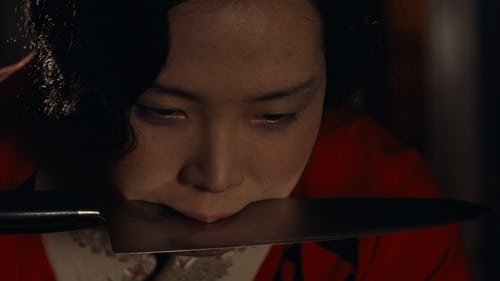
Screenplay
昭和11年。料亭の女中定は店の主人に心惹かれ、情事を重ねるようになる。その情事が男の妻に知れてしまい、二人は駆け落ちを決行する。快楽におぼれる日々を重ねるうちに定は男を永遠に手放したくないと思うようになり、ついには男を自分だけのものにするため首を絞めて殺害し、さらには男の陰部を切り取ってしまうのだった。

Director
昭和11年。料亭の女中定は店の主人に心惹かれ、情事を重ねるようになる。その情事が男の妻に知れてしまい、二人は駆け落ちを決行する。快楽におぼれる日々を重ねるうちに定は男を永遠に手放したくないと思うようになり、ついには男を自分だけのものにするため首を絞めて殺害し、さらには男の陰部を切り取ってしまうのだった。

Writer

Director

Interviewer
Documentary about the politician Sheikh Mujibur Rahman.

Director
Documentary about the politician Sheikh Mujibur Rahman.

Writer
Sunaoko come to Okinawa to find his brother Tsuruo. Her searching is not very painless because it tears up old wounds in complicated relationships, some of which date back to the horrors of war.

Director
Sunaoko come to Okinawa to find his brother Tsuruo. Her searching is not very painless because it tears up old wounds in complicated relationships, some of which date back to the horrors of war.

Director
The program investigates the secrets behind the success of Japan’s most famous baseball team, the Tokyo Yomiuri Kyojin-gun, affectionately known as the Giants. An interview with Kawakami, the coach at the time, retraces the glorious history of this team, which was Japan’s baseball champion for seven consecutive years, until 1971.

Director
"Goze" drawn by painter Shinichi Saito. One of the few remaining blind women in the snowy Niigata region, a traveling entertainer who played the shamisen and sang, visited villages and left a record of living on the mercy of others.

Writer
Oshima’s magisterial epic, centering on the ambivalent surviving heir of the Sakurada clan, uses ritual and the microcosm of the traditional family to trace the rise and fall of militaristic Japan across several decades.

Director
Oshima’s magisterial epic, centering on the ambivalent surviving heir of the Sakurada clan, uses ritual and the microcosm of the traditional family to trace the rise and fall of militaristic Japan across several decades.

Story
A metaphysical mystery involving a university student's camera getting stolen, and the thief then committing suicide. Looking back upon the event, the situation comes to be questioned if it happened at all.

Director
A metaphysical mystery involving a university student's camera getting stolen, and the thief then committing suicide. Looking back upon the event, the situation comes to be questioned if it happened at all.

Director
A family of four lives off of scams in which they pretend to be injured by automobiles. After suffering an injury during the war, the father believes he is an invalid. He and his wife have a 10-year-old boy and another, younger boy. The adults pretend to be injured by autos in crowded traffic, blackmailing the fearful motorists with threats to call in the police.

Director
Nagisa Oshima's documentary details the rise of Chairman Mao during the revolution and shows the Communist Party's struggle and cultural upheaval. Made in 1969 for NTV station, this TV documentary also questions Mao's dictator tendency during the cultural revolution.
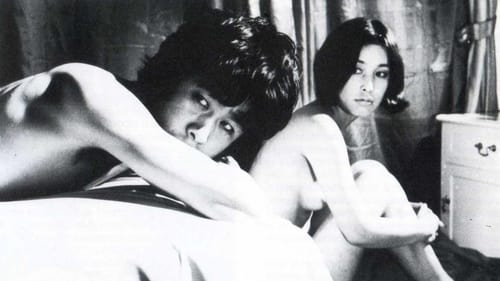
Writer
This is the story of a bookstore thief named Birdy, who is led through various adventures in Tokyo's Shinjuku district by salesgirl Umeko.

Director
This is the story of a bookstore thief named Birdy, who is led through various adventures in Tokyo's Shinjuku district by salesgirl Umeko.

Writer
Bored by the emptiness of everyday life, four students gather to play dangerous games in an apartment.

Editor
This is the story of a bookstore thief named Birdy, who is led through various adventures in Tokyo's Shinjuku district by salesgirl Umeko.

Writer
Three students spend their holidays at the seaside where they are mistaken for Koreans, a minority which is looked down on in Japan. The action develops into a crime story.

Director
Three students spend their holidays at the seaside where they are mistaken for Koreans, a minority which is looked down on in Japan. The action develops into a crime story.
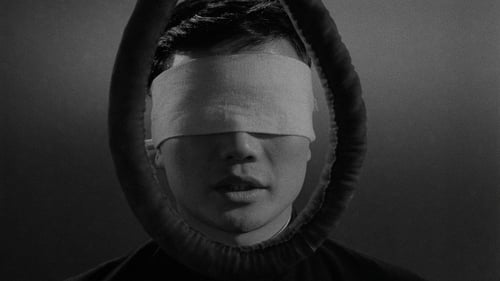
Screenplay
物語は死刑囚・韓国人少年Rの絞死刑が失敗したところから始まる。Rは死刑執行失敗のショックで心神喪失状態に陥ってしまう。その状態では刑の再執行は許されないため、Rの判断能力を取り戻させようと、死刑執行人たちが四苦八苦する姿がブラック・ユーモア風に描かれていく。執行人たちはRの家庭環境や彼の犯罪を芝居で再現して見せる。その混沌とする事実と虚構が、事件の真相や日本国家に内在する矛盾、問題点をあらわにしていく。

Narrator (voice)
物語は死刑囚・韓国人少年Rの絞死刑が失敗したところから始まる。Rは死刑執行失敗のショックで心神喪失状態に陥ってしまう。その状態では刑の再執行は許されないため、Rの判断能力を取り戻させようと、死刑執行人たちが四苦八苦する姿がブラック・ユーモア風に描かれていく。執行人たちはRの家庭環境や彼の犯罪を芝居で再現して見せる。その混沌とする事実と虚構が、事件の真相や日本国家に内在する矛盾、問題点をあらわにしていく。

Producer
物語は死刑囚・韓国人少年Rの絞死刑が失敗したところから始まる。Rは死刑執行失敗のショックで心神喪失状態に陥ってしまう。その状態では刑の再執行は許されないため、Rの判断能力を取り戻させようと、死刑執行人たちが四苦八苦する姿がブラック・ユーモア風に描かれていく。執行人たちはRの家庭環境や彼の犯罪を芝居で再現して見せる。その混沌とする事実と虚構が、事件の真相や日本国家に内在する矛盾、問題点をあらわにしていく。

Director
物語は死刑囚・韓国人少年Rの絞死刑が失敗したところから始まる。Rは死刑執行失敗のショックで心神喪失状態に陥ってしまう。その状態では刑の再執行は許されないため、Rの判断能力を取り戻させようと、死刑執行人たちが四苦八苦する姿がブラック・ユーモア風に描かれていく。執行人たちはRの家庭環境や彼の犯罪を芝居で再現して見せる。その混沌とする事実と虚構が、事件の真相や日本国家に内在する矛盾、問題点をあらわにしていく。
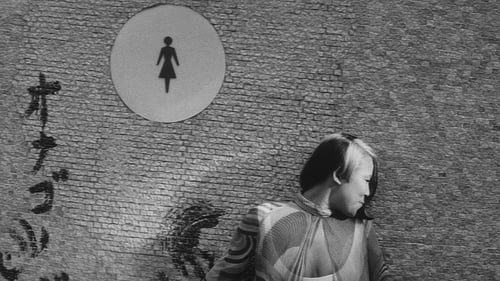
Writer
男を求めてさまようネジ子は、路上で男と出会い海岸へ行く。しかし男は自殺願望があり、ネジ子を抱こうとはしなかった。そこへ制服姿の男たちが現れ、武器の入った箱を運び出すところを、ネジ子たちは目撃してしまう。二人は男たちに連れ去られ、郊外の廃墟であるアジトに監禁される。アジトにはヤクザの出入りのために雇われた男たちがいたが、出入りは中止になり、ヤクザはいなくなってしまった。

Director
男を求めてさまようネジ子は、路上で男と出会い海岸へ行く。しかし男は自殺願望があり、ネジ子を抱こうとはしなかった。そこへ制服姿の男たちが現れ、武器の入った箱を運び出すところを、ネジ子たちは目撃してしまう。二人は男たちに連れ去られ、郊外の廃墟であるアジトに監禁される。アジトにはヤクザの出入りのために雇われた男たちがいたが、出入りは中止になり、ヤクザはいなくなってしまった。
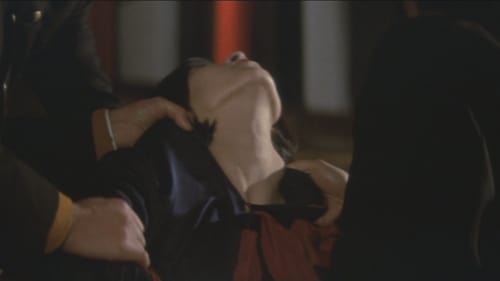
Writer
Four sexually hungry high school students preparing for their university entrance exams meet up with an inebriated teacher singing bawdy drinking songs. This encounter sets them on a less than academic path.

Director
Four sexually hungry high school students preparing for their university entrance exams meet up with an inebriated teacher singing bawdy drinking songs. This encounter sets them on a less than academic path.

Screenplay
A young boy joins a band of ninja during a peasant uprising, all depicted through an experimental form of filming pages from the original manga set to sound.

Producer
A young boy joins a band of ninja during a peasant uprising, all depicted through an experimental form of filming pages from the original manga set to sound.

Director
A young boy joins a band of ninja during a peasant uprising, all depicted through an experimental form of filming pages from the original manga set to sound.

Director
Two young women must come to terms with the fact that a man they're deeply linked to is a murdering rapist.
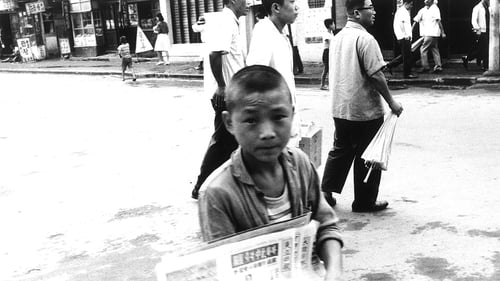
Producer
This ethereal montage of still images with darkly somber undertones, Yunbogi’s Diary is based on photographs that Oshima took during his two-month research trip to South Korea in 1965 during which he was haunted by his encounters with impoverished street children in Seoul. The voice-over comprises diary entries from a six-year-old Korean boy and Oshima’s own reflections on Japanese-Korean relations, a controversial subject that he revisited in his later films Sing a Song of Sex and Death by Hanging.

Writer
This ethereal montage of still images with darkly somber undertones, Yunbogi’s Diary is based on photographs that Oshima took during his two-month research trip to South Korea in 1965 during which he was haunted by his encounters with impoverished street children in Seoul. The voice-over comprises diary entries from a six-year-old Korean boy and Oshima’s own reflections on Japanese-Korean relations, a controversial subject that he revisited in his later films Sing a Song of Sex and Death by Hanging.

Director
This ethereal montage of still images with darkly somber undertones, Yunbogi’s Diary is based on photographs that Oshima took during his two-month research trip to South Korea in 1965 during which he was haunted by his encounters with impoverished street children in Seoul. The voice-over comprises diary entries from a six-year-old Korean boy and Oshima’s own reflections on Japanese-Korean relations, a controversial subject that he revisited in his later films Sing a Song of Sex and Death by Hanging.

Screenplay
A corrupt businessman blackmails the lovelorn reprobate Atsushi into watching over his suitcase full of embezzled cash while he serves a jail sentence. Rather than wait for the man to retrieve his money, however, Atsushi decides to spend it all in one libidinous rush—fully expecting to be tracked down and killed.

Director
A corrupt businessman blackmails the lovelorn reprobate Atsushi into watching over his suitcase full of embezzled cash while he serves a jail sentence. Rather than wait for the man to retrieve his money, however, Atsushi decides to spend it all in one libidinous rush—fully expecting to be tracked down and killed.
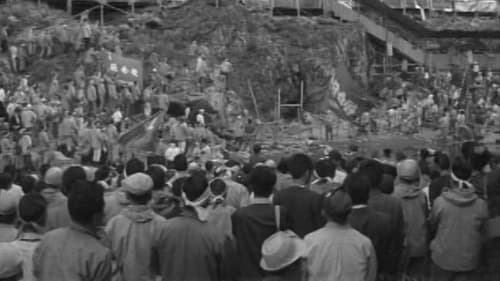
Screenplay
A chronicle of the eight-year battle against the construction of the Matsubara dam at Ogunimachi Shimouke, Asogun, district of Kumamoto. Tomoyuki Murahara constructs the “beehive fortress,” the point of reference for the protest movement opposing the decision to expropriate land.

Director
A chronicle of the eight-year battle against the construction of the Matsubara dam at Ogunimachi Shimouke, Asogun, district of Kumamoto. Tomoyuki Murahara constructs the “beehive fortress,” the point of reference for the protest movement opposing the decision to expropriate land.

Screenplay
A promotional film for the automobile manufacturer Isuzu Jidosha directed by Nagisa Ôshima - an anthology of three stories.

Director
A promotional film for the automobile manufacturer Isuzu Jidosha directed by Nagisa Ôshima - an anthology of three stories.

Screenplay
Oshima exposes the fact that many wounded soldiers cannot receive compensation from the Japanese government because of their Korean nationality, while questioning if this is a just way for the Japanese to act. The documentary uses TV to problematize the apathy of the Japanese people. According to Oshima’s 'The Idea of Evil and Cruelty' and Sato Tadao’s 'History of Japanese Documentary Film', the actual situation was much more serious and harsher than the documentary depicts.

Director
Oshima exposes the fact that many wounded soldiers cannot receive compensation from the Japanese government because of their Korean nationality, while questioning if this is a just way for the Japanese to act. The documentary uses TV to problematize the apathy of the Japanese people. According to Oshima’s 'The Idea of Evil and Cruelty' and Sato Tadao’s 'History of Japanese Documentary Film', the actual situation was much more serious and harsher than the documentary depicts.

Writer
In the year 1637 in Shimabara of Tokugawa-era Japan, oppressed peasant Christians revolt against the shogunate with the aid of a charismatic Christian rebel leader Shiro Amakusa.

Director
In the year 1637 in Shimabara of Tokugawa-era Japan, oppressed peasant Christians revolt against the shogunate with the aid of a charismatic Christian rebel leader Shiro Amakusa.

Director
Towards the end of the Second World War, a downed U.S. pilot is captured and imprisoned by rural Japanese villagers, who await official instructions as to how to proceed with their “catch.”
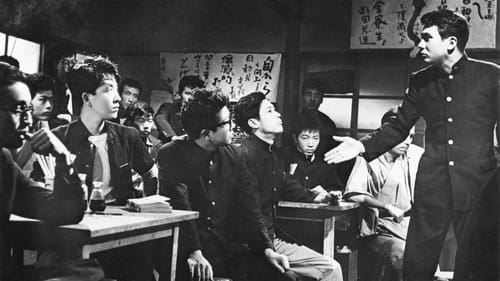
Writer
Nagisa Oshima’s most personal film is a reflection by the director on his own disillusionment with the revolutionary student movement of the 1950s and the failure of political radicalism. Taking its title (as a reference or homage) from Alain Resnais’ pivotal 1956 documentary Nuit et Brouillard, the film has a group of former student revolutionaries who meet again years later at the wedding of one of their classmates. Old feelings, rivalries and grudges gradually erupt to the surface as the one-time friends recall the various treacheries by which their cause was defeated. Cutting between times past and the present, and unfolding the action from each of his characters viewpoints, Oshima creates an abstract and yet engrossing study of passions past and principles eroded. —Yume Pictures

Director
Nagisa Oshima’s most personal film is a reflection by the director on his own disillusionment with the revolutionary student movement of the 1950s and the failure of political radicalism. Taking its title (as a reference or homage) from Alain Resnais’ pivotal 1956 documentary Nuit et Brouillard, the film has a group of former student revolutionaries who meet again years later at the wedding of one of their classmates. Old feelings, rivalries and grudges gradually erupt to the surface as the one-time friends recall the various treacheries by which their cause was defeated. Cutting between times past and the present, and unfolding the action from each of his characters viewpoints, Oshima creates an abstract and yet engrossing study of passions past and principles eroded. —Yume Pictures

Screenplay
In Osaka's slum, youths without futures engage in pilfering, assault and robbery, prostitution, and the buying and selling of identity cards and of blood. Alliances constantly shift. Tatsu and Takeshi, friends since boyhood, reluctantly join Shin's gang. Shin's an upstart and moves his gang often to avoid the local kingpin. Hanoko is a young woman with ambitions: first she's in the blood business with her father, then she joins forces with Shin. She soon breaks off that partnership, even though she's taken the sensitive Takeshi under her wing. Double crosses multiply. Those with the closest bonds become each others' murderers.

Director
In Osaka's slum, youths without futures engage in pilfering, assault and robbery, prostitution, and the buying and selling of identity cards and of blood. Alliances constantly shift. Tatsu and Takeshi, friends since boyhood, reluctantly join Shin's gang. Shin's an upstart and moves his gang often to avoid the local kingpin. Hanoko is a young woman with ambitions: first she's in the blood business with her father, then she joins forces with Shin. She soon breaks off that partnership, even though she's taken the sensitive Takeshi under her wing. Double crosses multiply. Those with the closest bonds become each others' murderers.
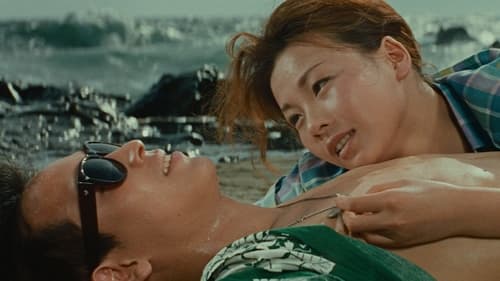
Screenplay
A budding gangster enthralls a freeloading young woman, soon taking advantage of her knack for hitch-hiking to rob middle-class, middle-aged men.

Director
A budding gangster enthralls a freeloading young woman, soon taking advantage of her knack for hitch-hiking to rob middle-class, middle-aged men.
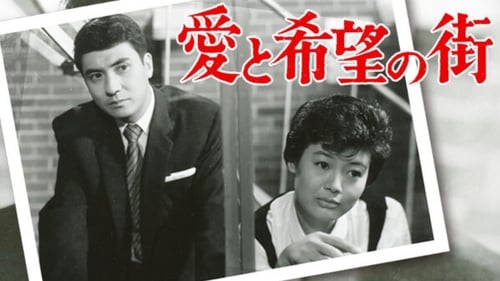
Writer
A young man runs a scam selling pigeons that always return to his home. He falls under the wing of Kyoko, an older student whose heart is touched after Masuo sells his pigeons to her. However, after his scam is revealed, can these feelings truly remain the same?

Director
A young man runs a scam selling pigeons that always return to his home. He falls under the wing of Kyoko, an older student whose heart is touched after Masuo sells his pigeons to her. However, after his scam is revealed, can these feelings truly remain the same?

Screenplay
Comedy about the trials and tribulations of youth.
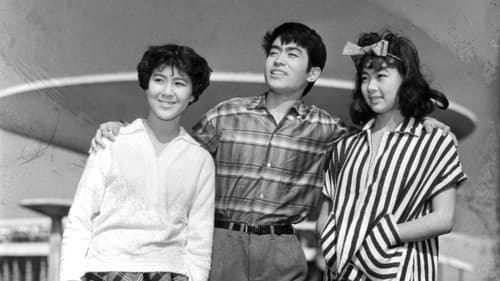
Writer
A playful short film made in the style of a trailer for a fictional feature film that seems to be a spoof of films that were popular in Japan at the time.

Director
A playful short film made in the style of a trailer for a fictional feature film that seems to be a spoof of films that were popular in Japan at the time.
